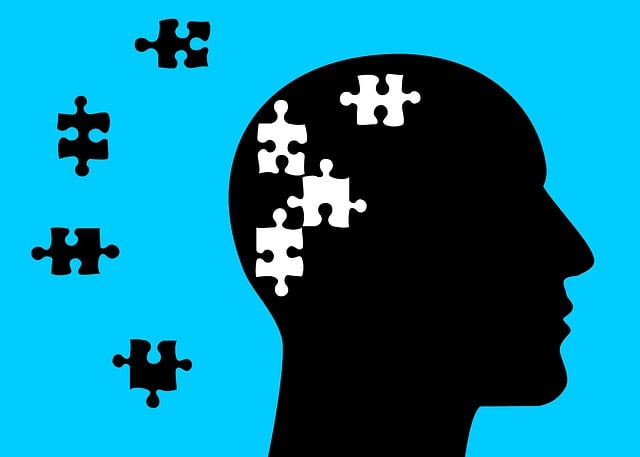The media's portrayal of mental health among Russian-speaking teenagers is crucial but often falls short, perpetuating stereotypes that hinder access to understanding and support. To improve this, a collaborative effort between media creators and mental health professionals is needed to depict therapy for adolescent teens Russian speaking accurately and sensitively. This includes incorporating relatable characters undergoing therapeutic processes, reducing stigma, and normalizing conversations around mental health. By integrating media literacy into treatment plans, therapists empower adolescents to critically analyze content, fostering positive thinking and confidence vital for emotional well-being.
Mental illness representation in media significantly influences public perception, especially among adolescents. This article explores the current state of mental health portrayal in media for Russian-speaking teens, identifying challenges and proposing solutions. We discuss strategies to enhance representation with a focus on accurate and therapeutic content. Additionally, we highlight the crucial roles of therapists and support groups in empowering adolescents through media literacy and access to care, specifically tailored to meet the needs of this demographic.
- Understanding the Current State: Mental Health Portrayal in Media for Russian-Speaking Teens
- Strategies to Enhance Representation: A Call for More Accurate and Therapeutic Content
- The Role of Therapists and Support Groups: Empowering Adolescents through Media Literacy and Access to Care
Understanding the Current State: Mental Health Portrayal in Media for Russian-Speaking Teens

The current state of mental health portrayal in media for Russian-speaking teens is a topic of growing importance. Studies show that media representation significantly influences societal perceptions, including those related to mental illness. In Russia and neighboring countries, where mental health discussions have traditionally been stigmatized, the media plays a crucial role in challenging these negative stereotypes. However, analysis of recent trends reveals a mixed picture. While some television shows and films are making efforts to depict mental health issues more accurately, many still resort to simplistic or even harmful portrayals, reinforcing outdated myths. This disconnect between reality and media representation poses significant challenges for Russian-speaking adolescent teens seeking understanding and support.
The lack of accurate information can deter teens from seeking therapy for adolescent teens Russian speaking or accessing available crisis intervention guidance. Mood management strategies, as a key aspect of mental health policy analysis and advocacy, are often underemphasized or misrepresented in popular media. Consequently, teens may struggle to recognize their own symptoms or feel embarrassed to discuss them openly. To address this issue, it is imperative to engage both media creators and mental health professionals in productive dialogues, ensuring that media narratives reflect the latest research and best practices. This collaborative approach can foster a more inclusive and supportive environment for Russian-speaking teens grappling with mental health issues.
Strategies to Enhance Representation: A Call for More Accurate and Therapeutic Content

Media has a significant impact on shaping societal perceptions, and accurate representation of mental illness is crucial to foster empathy and understanding. To enhance this representation, creators should collaborate with mental health experts for more authentic portrayals. Incorporating therapy scenes, especially focusing on therapeutic practices tailored for adolescent teens in the Russian-speaking community, can significantly contribute to mental illness stigma reduction efforts.
By showcasing emotional healing processes through relatable characters, media can encourage viewers to seek support and practice self-care. This approach not only educates but also normalizes conversations around mental health. The industry should strive for diverse narratives that reflect the complexities of various mental illnesses, ensuring a more nuanced and sensitive portrayal that goes beyond stereotypical representations.
The Role of Therapists and Support Groups: Empowering Adolescents through Media Literacy and Access to Care

Media representation plays a pivotal role in shaping societal perceptions about mental health, especially for adolescents who are still developing their sense of self and coping mechanisms. When media portrays mental illness accurately and with sensitivity, it can act as a powerful tool to destigmatize these conditions and encourage teens to seek help. This is particularly crucial for Russian-speaking adolescent teens, who may face additional barriers due to language differences or cultural norms.
Therapists and support groups are on the frontlines of this challenge, offering essential services tailored to this demographic. By incorporating media literacy into their treatment plans, therapists empower teens to critically analyze media content related to mental health. This helps in fostering positive thinking and building confidence, two key aspects that contribute to emotional well-being promotion techniques. Through these efforts, adolescents gain a deeper understanding of their experiences and feel more equipped to navigate and manage their mental health journeys effectively.
Mental illness representation in media plays a pivotal role in shaping public perception, especially among adolescents. By promoting accurate and therapeutic content, we can significantly improve mental health support for Russian-speaking teens. Integrating strategies that foster media literacy and access to care, including the involvement of therapists and support groups, is crucial in empowering this vulnerable demographic. Enhancing media representation not only challenges current stereotypes but also paves the way for more effective therapy for adolescent teens within this linguistic community.








